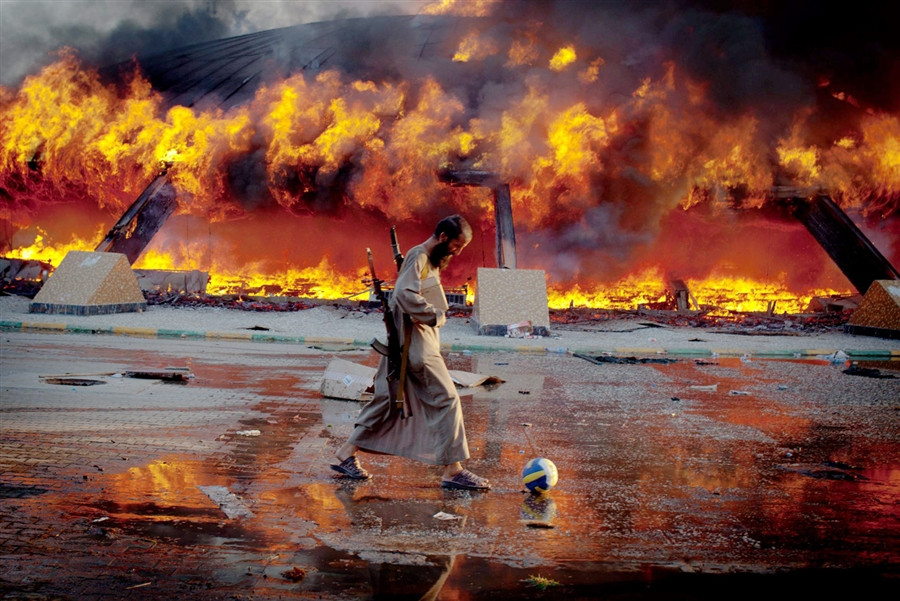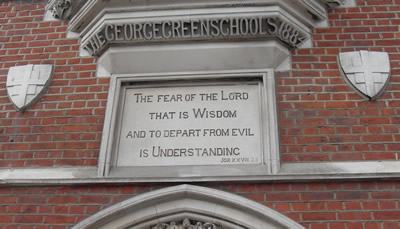A self-criticism. I find terrible, mocking humor to be enjoyable. I laugh at others expense and find the foibles and flaws of my rivals and political adversaries to be particular amusing. I will, in all engaged interest, sit for hours detailing flaws and imperfections in others, hopefully to comedic effect. I am not going to attempt to caveat this trait by saying that I will laugh just as hard when the flaw being exposed is mine, although this is true. I just find, and I don’t love this about myself, that cruel humor is my favorite.
But I don’t take it seriously. My actual feelings about rivals, myself, or flawed activity is complicated by all of the qualities that ones feelings usually are. I am as likely to despise an adversary as I am a so-called ally. The qualities that I like in others is not related to my own particular preference towards cruelty.
In this sense I understand a lot of the motivation of trolls and troll culture. When we are powerless to impact the world in such a way where we can see the impact of our blows it makes sense to attack things that get injured. We are curious creatures that deeply desire to see our experiments flourish. The cruelty we inflict on the world is unrelated to the humans we inflict it on. This disconnection has obviously been exacerbated by the Internet and the seeming lack of consequence for cruelty but we (as in humans) have long since been disconnected and done horrible things (to the world & each other) as a result of this social unpluggedness.
While I still find considerable pleasure in a similar type of cruelty I have to acknowledge that I have the incredible privilege of not ever having to do it online. I have people who find the same things funny as I do around me all the time. I have constructed a life where these pleasures feature centrally. But the corporealness of them is most important. Cruelty in isolation would have long since twisted me into the ineffective pathetic creatures I host on various websites and blogs. I understand the troll and despise them because they are what I could have been if not for a combination of luck, will, and being just a bit too old to have become trapped by the Internet for my social self-understanding.
Is all PR good?
I recently have been alerted (thanks everyone!) to an actual IRL troll of me. Correction. This is not a cruel attack done for the lulz (or whatever) but someone who believes they are doing what they are doing in the name of anarchist activists (TM) everywhere. Putting aside the very sad (and real) story of this particular individual the difference between them and a troll, between cruelty and activism, between attack and denouncement, is a central concern for me right now.
Perhaps this is a statement of our time but this is also a way to orient our conflictual capacity in real terms. We can not reasonably talk about movements of the liberation of humans against the oppressors, or perhaps we can but we don’t. Instead our fights are microscopically small and our victories are even smaller. We talk about abstractions that we oppose and our actions in regard to them is very small (aka break window, write manifest). We have an IRC argument with someone and in turn hack their email, delete their memories, and publicly advertise their home address (true story) and call our victory total. Our capacity to hurt individuals is inversely proportional to the importance of doing the same. Bad people, especially bad radicals, have little to do with the condition of the world, the problems of daily life, or our incapacity to do anything about it. Or perhaps the opposite is true, perhaps bad people are directly related to capacity.
In a related story I recently corresponded with someone who is being publicly trolled and they turned to me as someone to fix the problem. The inappropriate mention of their name was a source of concern and they feared that the deceit would be taken as truth. This is real. It is also false.
I’ll try to break this down a little bit more. Assuming the context of an open web forum (which are understandably becoming less common or perhaps more self-selecting) there are a number of concerns about bad information. One is the fact that a (self-selecting) reader might confuse the bad information with truth. They might think that X is a criminal (as a neutral way of discussing everything from the smashy to the genocide) because someone says as much, signs a post admitting to such, or is accused of being one by a convincing story. Two is association. If X is put into the same frame as criminality, in a web forum, then future discussions about criminality could very well include X as a related topic. Third is the idea that X and criminality may have a relationship but as presented is either a misrepresentation or a slander. Finally is the idea that outside of the discussion itself is the future. Search engines are forever. If X is associated in whatever way to criminality (or an open web forum) it means that X doesn’t have control over their own story. This has implication in everything from legal cases (or the States research interests) to jobs.
While this is often much ado about nothing it does put the power of representation into the hands of people who often don’t have any skin in the game. I, for instance, haven’t used my full legal name in any anarchist contexts but I have an old friend who used it to advertise for an event I participated in in the 90s. Several mentions of this event still linger on the front page of a search for my full legal name. I have attempted to contact, and resolve, this concern for several years to no avail. The people who get the emails associated with the top level domains just have no motivation, or interest, or process to protect my desire to not have my legal life associated with my anarchist life. In my case I have had to start the slow, ambivalent, process of changing my legal name as the only real way to sever my future (hostile) relations with employers or stalkers with my oh-so-naive past.
For younger people, for Facebook users, this problem will only get worse.
You may ask what my decision was regarding the trolled person? The other side of this discussion for me relates to the role of being a public person (a “personality”). I realize that talking to reporters, writing a book, or doing presentation shouldn’t necessitate the signing of some sort of unstated contract but for me, it kind of does. It means that you are choosing to associate yourself publicly with something. In my case it is anarchy, in another persons case it may be poetry, or Pokemon, or whatever. If you are public it means you have to accept the fickle, fickle love that the public has to offer. For some people this love means being accepted as a respected public intellectual or activist, for others it means being pilloried and reviled. As far as I’m concerned there is a choice, a willful act, that moves you from a private person to a public person. I am on the public side of this choice, as are many of my friends, but as a result I have had to suffer indignity and attack along side the (positive) attention and respect. I think it is disingenuous for other public personalities to think they should only get the pluses without getting the minuses so I refuse to coddle this kind of behavior. I think this is grist for the mill (see 1-3 on the list above).
But, and this is a big but, I don’t think it should last forever. I think a scandal, most every scandal, should last for the five minutes (or ten seconds) that it deserves and then that we should all move on. Search engines don’t allow for this so my decision regarding the trolled was to remove all mention of them after the scandal (such as it was) was aired.
This whole situation was a useful exercise for me because I much prefer my policy decisions to hinge on a different axis (or two if possible) than just “this is the policy” so putting the temporal axis into this decision was helpful. It also helped that the trolled came in good faith AND that I got good advice from an adviser… but this is how small decisions often times end up being big ones.
I’ll wrap this up. The earth is filling up. Many of the horrific things I despise about the existing order are, from the perspective of capital p Power, crowd control. There are too many of us, we are anonymous, and becoming invisible is most peoples alienated reality. Trolling, and the cruelty of the troll, is a kind of care too. The troll is paying attention, it may be a negative attention, but can you blame them? The troll is the most reviled of creatures in a world filled with the despised, the despicable, the tortured, and the lonely. It’s a funny way to end this but this is one of the few times where I believe in the healing power of the sun, by which I mean not only fresh air, exercise, and being outdoors but the brightness of people in a room, disagreeing and sharing a mammalian moment or two.


